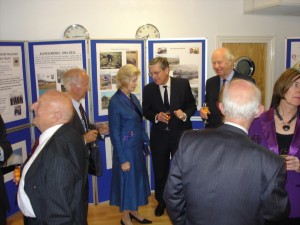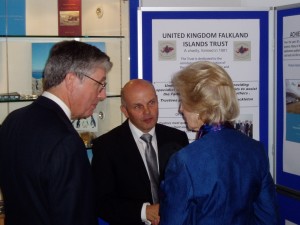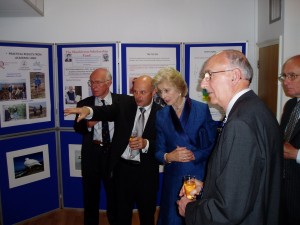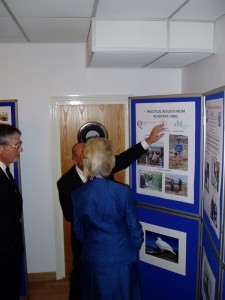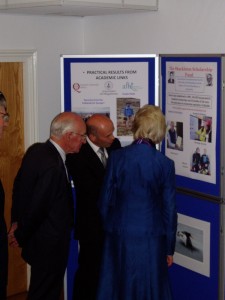Publications
1.McAdam J H (2013) The impact of the Falklands War (1982) on the peatland Ecosystem of the Islands. In ; Rotherham I & Handley C (eds) War and Peat. Wildtrack Publishing, Sheffield. Vol 10 (2013) of Landscape Archaeology and Ecology pp 143-162 Summary. Although the Falkland Islands (52°S) are relatively small (12,000km2) they are a globally important peatland resource. Most of the soils are classified as peat which has been formed under a unique set of climatic conditions and location-specific circumstances. Their estimated carbon stock is equivalent to 66% of the UK total and more than that of Ireland. The Falklands War in 1982 was essentially fought on peatlands. However the timing of the action (winter), the relatively short duration of the land conflict and the unpreparedness of the combatants for the peatland conditions meant that overall impact on the ecosystem was minimal. A small but significant area of minefields is an unwelcome human legacy (which may have some ecosystem benefits) but a greater number of military and other tourists visiting the main battle sites has the potential to increase awareness of the peatland ecosystem.
2.McAdam J.H. (2013)The impact of the Shackleton report on developments in the Falkland Islands post-1982. Summary. In 1976 the Labour Peer Lord Edward Shackleton was asked to produce an economic survey of the Falkland Islands focusing on their current viability and development potential. His main findings were that the Falklands were suffering from decapitalisation (there was a net gain to the British exchequer over a 20 year period) and that there was significant natural development potential (e.g. fisheries and hydrocarbons). He also made recommendations on fiscal procedures and infrastructure. His main recommendation was that the large company own farms should be sub-divided and sold as individual family run units – very radical agrarian land reform for the late 20th century. The report was largely ignored. During the Falklands War, Prime Minister Thatcher asked Lord Shackleton to revisit his 1976 report, update it and make recommendations for the post – war development. Shackleton did not change his initial report much and the added impetus (and money) given by the Thatcher Government meant that most of the recommendations could be implemented. The Falklands subsequently prospered, eventually becoming (by 1988) financially self-sufficient from Britain. Farm sub-division had a largely positive effect on rural infrastructure. Margaret Thatcher’s willingness to support what was essentially a Labour-driven programme is significant and her legacy in the Falklands post – 1982 is essentially one of implementation of the Shackleton report recommendations.
Paper presented at the Theoretical Archaeology Group, Bournemouth University Conference “Archaeologies of Margaret Thatcher”
3.McAdam J H (2014) Farming on the Peatlands of the Falkland Islands “ In the Bog– The ecology, landscape, archaeology and heritage of Peatlands” in Sheffield on 4th Sept 2014 Summary The Falkland Islands (51-53°S), land area 12,200km2 have a cool (2.2°C.- 9.4°C), temperate oceanic climate. Rainfall varies between 400-800mm and is lowest in spring. The islands were glaciated and acid, organic soils have formed mainly because of low temperature and the impervious clay-rich subsoil creating conditions which favour waterlogging. Upland peat, lowland peat or tussac (coastal) peat cover virtually the entire land surface. Vegetation is typically dwarf shrub heath on drier soils and magellanic moorland on wetter soils. Agriculture is confined to extensive sheep farming in large enclosures (89% > c. 2000 ha).In the early days of the Colony (early 1800s) cattle roamed the islands and sheep were first introduced in the 1860s. They quickly became the main source of income on the (approx. 30) large farms which existed up until the early 1980s. Lord Shackleton’s Economic Survey (1976) recommending subdivision of the large farm units and transferring land ownership to local owners transformed the agricultural industry on the islands. Subsequently, the building of a certified abattoir in the early 2000s created further major opportunities. Traditionally, pasture improvement through reseeding and fertilising was practiced only on a very small scale. Recently the development of pastures with improved grasses and legumes coupled with rotational grazing has received much greater priority than previously. There are concerns that climate change predictions have indicated a steady temperature rise resulting in an unfavourable precipitation-evapotranspiration balance and other factors may contribute to the instability of the peatlands. Now and in the future, agricultural management practices will play a key role in ecosystem services delivery and climate change mitigation in the islands







